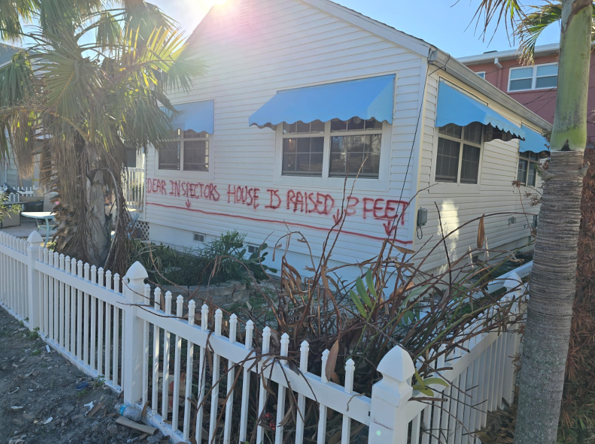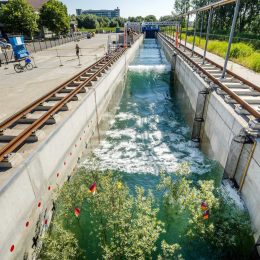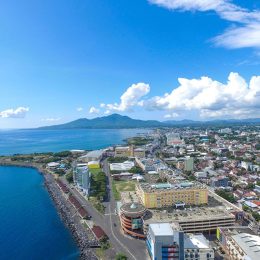Climate Hazards for U.S. Atlantic Coast
A new study from the USGS, in collaboration with Deltares, Deltares USA, and many other partners, highlights the escalating climate risks for coastal communities along the Southeastern U.S. Atlantic coast. Projections indicate that by 2100, up to 70% of the population will be exposed daily to shallow and emerging groundwater. Combined with other climate-driven coastal hazards such as flooding, beach erosion, and subsidence, these threats underscore the urgent need for comprehensive climate adaptation planning.

Global and local models
The study utilizes the Coastal Storm Modeling System (CoSMoS), initiated by Deltares USA scientist Maarten van Ormondt, as a key tool for assessing the risks of rising sea levels and storm impacts. CoSMoS integrates global climate models, oceanographic data, and local observations to provide comprehensive insights into coastal hazards. The findings reveal that groundwater hazards alone could affect over 10 million people and $1 trillion in property by 2100. Furthermore, daily high-tide flooding is projected to impact 600,000 people and $80 billion in property, while a 100-year storm event could threaten 7 million people and $800 billion in assets.
Erosion and subsidence
Beach erosion and subsidence further exacerbate the risks. While erosion affects fewer people and less property, efforts to stabilize beaches could lead to the permanent loss of up to 80% of present-day beaches due to "coastal squeeze." Moreover, subsidence already affects over 1 million residents.
Compounding impacts
“This study underscores the complexity of climate hazards and their compounding impacts on coastal communities,” explains Kees Nederhoff, a coastal scientist at Deltares USA. “It’s critical to adopt integrated, adaptive solutions—ranging from seawalls to nature-based restoration—to reduce risks and safeguard the region's infrastructure.”
This study is the first to compare flooding and groundwater hazards at such a large scale and serves as a model for assessing climate risks in low-lying coastal areas worldwide. As part of the study, innovative methods for assessing compound flooding, such as the Deltares-developed SFINCS model (see image at the beginning of the tekst), were further developed and applied. Future research will further explore the interactions between groundwater, flooding, and other hazards to improve adaptation strategies. The findings highlight the importance of holistic, proactive climate adaptation measures to protect people, infrastructure, and economies from escalating climate threats.

The study was published in Nature Climate Change. Deltares experts who contributed to this study: Tim Leijnse, Kees Nederhoff (Deltares USA), Robert McCall, Maarten van Ormondt.
Deltares and USGS share data, models, and expertise
The long-standing partnership between Deltares and the United States Geological Survey (USGS) revolves around the intensive exchange of knowledge, data, models, and scientists. Since its inception in 2001, this collaboration has yielded significant scientific breakthroughs, providing policymakers worldwide with the tools to address climate change and coastal challenges effectively.





